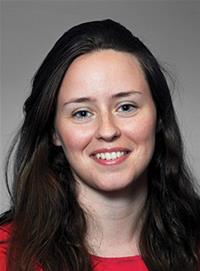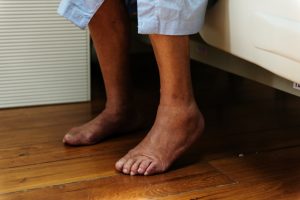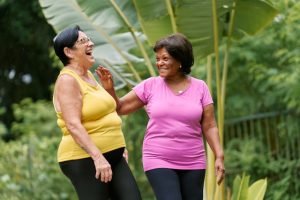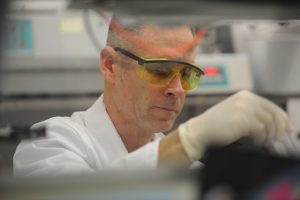
The ongoing COVID-19 pandemic has served as a stark reminder of the significance of reliable healthcare systems. For the next generation of prospective healthcare professionals commence their studies, COVID-19 offers many lessons, albeit with a steep learning curve. If you want genuine experience in the medical field, your best bet is to intern with an organization like International Medical Aid. Indeed, International Medical Aid’s team offers programs for students who want to diversify their healthcare delivery experiences and work across cultural boundaries and norms. If these sentiments resonate with you, read on to find out more about International Medical Aid and their terrific internship placements.
The art of shadowing
As a healthcare/medical student, your practical experience is somewhat limited. However, International Medical Aid’s programs will provide you with many opportunities to “shadow” real-life doctors working in developing countries. Shadowing is an essential component of your medical training, allowing you to work closely with qualified staff and observe their interactions with patients and staff. This enables you to pick up reliable tips on communicating with patients while understanding the strain of the job and its responsibilities.
How COVID-19 has changed things
There’s no doubt that COVID-19 has thrown a spanner in the works. As a prospective doctor or healthcare professional, you must do everything you can to maintain hygiene, social distancing and public health safety. The COVID-19 pandemic has shown that hospitals, medical centres and retirement homes are environments conducive to spreading the virus at an exponential rate. We saw the dire consequences of this in New York City.
So, the team at International Medical Aid have devised a system of enhanced protocols for their interns. Each intern is required to adhere to these prescriptions both in and out of work. Here are the most critical things to remember:
Social distancing
Social distancing is arguably one of the most critical components of any COVID response. In medical environments (like hospitals and medical centres), social distancing measurements are crucial, since many people in such environments are immunocompromised. This means all staff and patrons should be maintaining social distancing as much as they can while using appropriate personal protective equipment (PPE) when necessary.
Hand washing
Hand washing is also critical. Most contagious diseases are contracted via individuals breathing in the virus or directly touching the germ and then rubbing the face, eyes and mouth. Frequent hand washing and sanitising are mandated at our internship facilities, as this is proven to help minimise the virus’ spread. We also strongly discourage interns from unnecessarily touching their face (which is standard practice in medical facilities), along with frequent hand washing.
Masks and face coverings
Our interns also need to be mindful of regulations regarding the wearing of masks and face coverings. Everyone in the hospital needs to be wearing a mask, and the best form of protection is a medical-grade face covering. Try not to touch the mask, unless repositioning it on your face for better security. It would be best if you were sanitising your hands before and after touching your mask as well.
Touching public surfaces
Finally, our interns need to be mindful of touching public surfaces, especially in the hospital. Diseases can spread quickly (especially something like COVID-19 or the flu), so if you do touch a surface, make sure you wash your hands promptly afterwards to avoid contamination of other surfaces.
Where our interns go
Our internships were briefly stopped in East Africa during 2020 (because of the pandemic); however, we are happy to announce that they are fully operational once again. If you are interested in interning in the East Africa region, then make sure you clearly outline this aspiration on your application. We offer our students unique opportunities in a plethora of areas, including the following:
- Sub-Saharan Africa
- Caribbean
- South America
Why you should choose us
One of the big things that differentiate International Medical Aid team from the rest is their history and experience with infectious diseases. They’ve been working with infectious disease experts for many years, safeguarding medical experts from accidental exposure or massive outbreaks. On top of this specialty, you should choose International Medical Aid as your internship provider because of our values. Check out some of them below:
Security is priority
International Medical Aid maintains a 100 percent safety record: a remarkable achievement. This can be attributed to the organisation’s vast experience in treating and controlling disease outbreaks. Our interns receive ongoing, 24-hour support from our high-quality support services. These teams (known as The Crisis Management Team) will respond to any crisis you might experience while overseas so you can rest assured that you’ll be in good hands.
Residences provided
Lodging is provided to all interns who take up the program. These residences are located in gated communities (for added security and safety) and are equipped with access to hot water and safe bottled water. There is also on-site housekeeping for cleaning and individuals who need assistance with domestic tasks, like laundry and washing.
Protected with insurance and access to amenities
Likewise, all interns are protected with premium insurance policies, which cover travel, medical and evacuation needs. You’ll also have access to the internet (all residences have Wi-Fi), enabling you to stay in touch with close family and friends.

Sarah Brown is a dedicated health journalist with a background in biomedical sciences and a master’s degree in health communication. Known for her clear and engaging writing, she covers a wide range of topics from medical breakthroughs to mental health. Her work, featured in leading health publications, makes complex medical concepts accessible to all. Outside of writing, Sarah volunteers at local health clinics and participates in community health programs.





